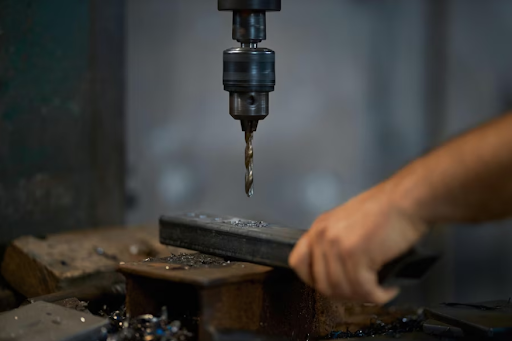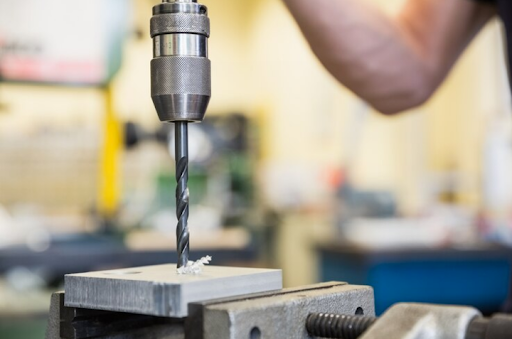Drilling into metal can be a challenging task, but with the right tips and techniques, you can achieve successful metalwork projects. Whether you’re a DIY enthusiast or a professional, understanding how to drill into metal effectively is crucial.
In this article, we’ll guide you through the process step by step, ensuring that you can confidently tackle metal drilling projects.
-
Table of Contents
Choosing the Right Drill Bit for Metal
The first step to successful metal drilling is selecting the appropriate drill bit. For metalwork, you’ll need a high-speed steel (HSS) or cobalt drill bit. These are the strongest drill bits for metal which are specifically designed to withstand the hardness of metal and ensure clean holes without dulling quickly.
-
Using a Pilot Hole
Before drilling the actual hole, consider creating a pilot hole. A pilot hole is a smaller hole that serves as a guide for the larger drill bit. It helps prevent the larger bit from slipping and ensures more precise drilling.
-
Clamping the Metal Securely
Metalwork requires stability. Clamping the metal securely to your work surface prevents movement during drilling. This stability ensures that the drill bit remains steady and maintains the accuracy of your drilling.
-
Using Lubrication
Lubrication is essential when drilling into metal. It helps reduce friction, heat, and wear on the drill bit. You can use a lubricant specifically designed for metal drilling or even a few drops of oil to keep the bit cool and extend its lifespan.
-
Starting Slowly
Begin drilling at a slow speed. This allows the drill bit to make initial contact with the metal and create a groove. Once the groove is established, you can gradually increase the speed for smoother drilling.

-
Applying Even Pressure
Consistent pressure is crucial throughout the drilling process. Apply gentle, even pressure to prevent the drill bit from binding or breaking. Avoid pushing too hard, as this can damage the bit and hinder the drilling progress.
-
Using a Backing Plate
When drilling through thin metal sheets, using a backing plate can prevent the metal from bending or warping as the drill bit exits. Place a piece of scrap wood or metal behind the workpiece to provide support.
-
Clearing Chips
Metal drilling generates chips or shavings that can accumulate in the hole and affect drilling efficiency. Periodically retract the drill bit to clear the chips, ensuring smooth progress and a clean hole.
-
Cooling the Drill Bit
Continuous drilling generates heat, which can dull the drill bit quickly. To prevent overheating, take short breaks during drilling to allow the bit to cool down. You can also apply more lubrication as needed to maintain a cooler temperature.
-
Using the Right Speed and Pressure
Different metals require different drilling speeds and pressures. Consult the manufacturer’s guidelines for recommended speed and pressure settings for the type of metal you’re working with. Adjust the settings accordingly to achieve the best results.
-
Selecting the Right Water Filter for Sink Faucet for Metal Drilling Projects
When working on metal drilling projects, having clean and safe water is essential for cooling down the drill bit and prolonging its life. Installing a water filter for the sink faucet can provide you with a convenient source of clean water. Choose a filter that meets your needs and complements your workspace.
-
Safety First
Metal drilling involves sharp tools and potential hazards. Always wear appropriate safety gear, including safety glasses and gloves, to protect yourself from debris and sharp edges.
Conclusion: Mastering Metal Drilling
Drilling into metal doesn’t have to be intimidating. By following these tips and techniques, you can master metal drilling and achieve successful results in your projects. From choosing the right drill bit to maintaining proper speed and pressure, each step contributes to clean, precise, and efficient metalwork. Remember that having a water filter for the sink faucet can enhance your workspace by providing clean water for cooling and lubrication during your metal drilling endeavors.





